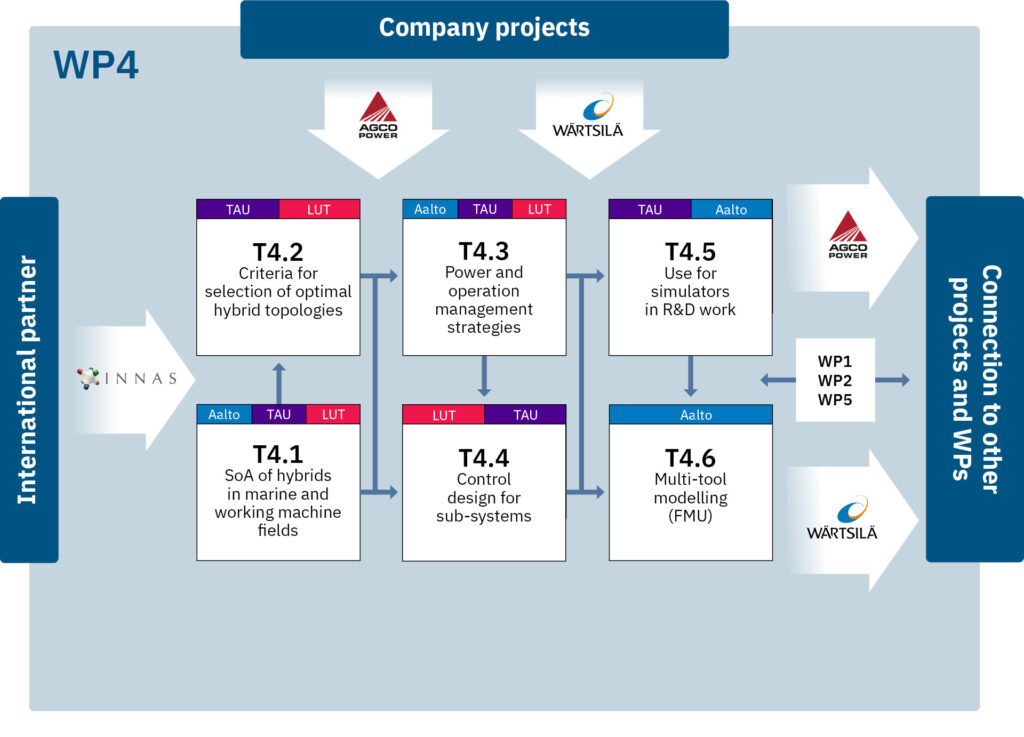WP Leader: Petteri Multanen, Tampere University
Research organizations: Tampere University, Aalto University & Lappeenranta University of Technology
Companies: Wärtsilä Finland Oy, AGCO Power Oy, Meyer Turku Oy, Bosch Rexroth Oy, Geyser Batteries Oy & APUGenius Oy
International collaboration partner: Innas BV, Netherlands
Today, the increasing part of added value for new technical solutions comes from digitalization and advanced automation. Using a novel model-based system engineering (MBSE), machines can be made more reliable, more energy efficient, and the operation can be optimized. In the conceptual phase, in MBSE approach, the requirements, architecture, simulation and testing of machine system performance will be integrated in a single platform. This will allow validation of the requirements of the components as hardware in the loop, software in the loop, model in the loop, for the entire duration of the development. In the operational phase, MBSE approach will allow for the enhancement of digital twin, by using computational results for training data collection and analysis. This will increase the accuracy of managing power use, behavior control or even predictive maintenance use. From the energy efficiency point of view, hybrid power transmission systems, e.g. of ships and working machines, are characterized by high complexity compared to conventional designs, which makes their design and control challenging. Several different technologies exist for implementing energy/power storage elements, including electric batteries and supercapacitors, hydraulic pressure accumulators and flywheels. Each of them has their own unique characteristics, such as energy and power density, efficiency and dynamics. The main objective is to analyze different topologies and power management systems in two application fields – marine and working machines with the analyzing tool, which will be developed in this project.
T4.1 State-of-art of hybrids in marine and working machine fields (Kari Tammi, Aalto University);
T4.2 Study of criteria to select optimal hybrid topologies (Petteri Multanen, Tampere University);
T4.3 Study of power and operation management strategies (Kari Tammi, Aalto University);
T4.4 Control design for sub-systems (Lasse Laurila, Lappeenranta University of Technology);
T4.5 Use of Digital Twin and HIL-simulators in research work (Matti Linjama, Tampere University);
T4.6 Multi-tool modelling, FMU (Kari Tammi, Aalto University).
S1. Dynamic control of a power unit is an innovation to be developed further in the project;
S2. Application of FMI/FMU interfaces will change R&D processes and increase the significance of models in business processes;
S3. New solutions or innovations to energy and power management using model-based system engineering.
